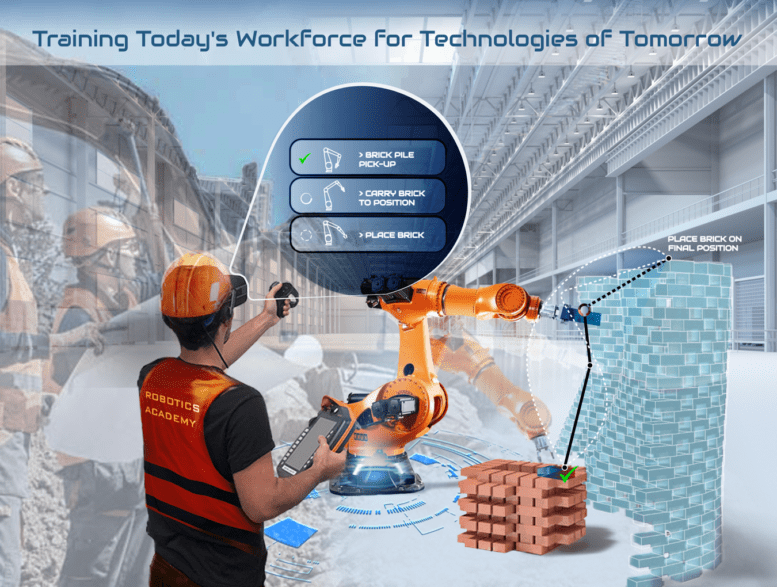The National Science Foundation’s (NSF) Convergence Accelerator program has awarded a $1 million grant to a team of FIU researchers to evaluate the automation needs of the architecture, engineering and construction industries and develop a training program in partnership with several local firms and global industry experts.
The FIU project is led by Professor Shahin Vassigh from the College of Communication, Architecture + The Arts (CARTA) and involves faculty from the College of Engineering & Computing, College of Arts, Sciences & Education, STEM Transformation Institute, Institute of Water and Environment, and the Jorge M. Pérez Metropolitan Center, part of the Steven J. Green School of International & Public Affairs.
“Today, we are on the brink of the fourth industrial revolution, due to advancements in the fields of artificial intelligence, information technologies, and robotic automation,” Vassigh said. “The global economy is rapidly being reshaped by the use of sophisticated machines that enhance human dexterity, visual perception, speed, and strength. This project will help us increase employment opportunities and improve regional industry competitiveness.”
Dubbed “Preparing the Future Workforce of Architecture, Engineering, and Construction (AEC) for Automation and Robotic Processes,” the project proposes a cloud-based training program for a “Robotics Academy,” which is composed of immersive training software, a collaborative knowledge repository (online database), and an automation forum.
FIU Professor and Associate Director in the School of Computing & Information Sciences (SCIS) Shu-Ching Chen is one of the project’s co-principal investigators. He will lead the AI and machine learning components of the project.
“Using object detection and pattern recognition will enable us to improve training programs in virtual environments,” Chen said. “It will also allow us to customize the lessons based on the user’s interactions and evaluate the trainee’s performance.”
The first phase, which will be completed in the next nine months, is focused on researching and planning the training program. If selected for a continuation grant of $5 million, the team will work on completing the Robotics Academy with plans to have it adopted by industry.
The project’s industry collaborators include KUKA Robotics, Magic Leap, Gensler, ArquitectonicaGEO, SKANSKA, Oppenheim Architecture + Design, DSS Condo, McKenzie Construction, Gurri Matute, Berenblum Busch Architecture, UrbanCentric Analytics, Kruysman/Proto, and Atonaton.
“The Convergence Accelerator is a unique new experiment for NSF,” said Douglas Maughan, NSF’s Convergence Accelerator office head. “For decades, traditionally the private sector has not been able to justify investment in basic research due to a lack of obvious commercial applications. With the Convergence Accelerator, we’re challenging that notion, engaging with partners who can use their experience to help us support research that can change and enhance American society.”







